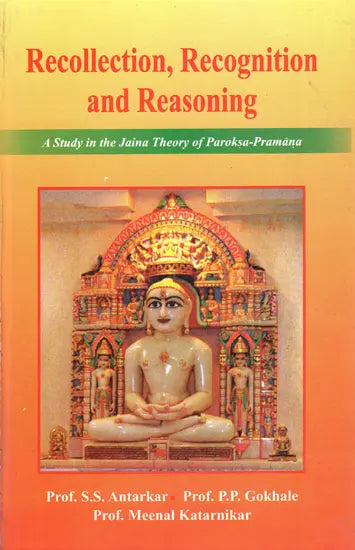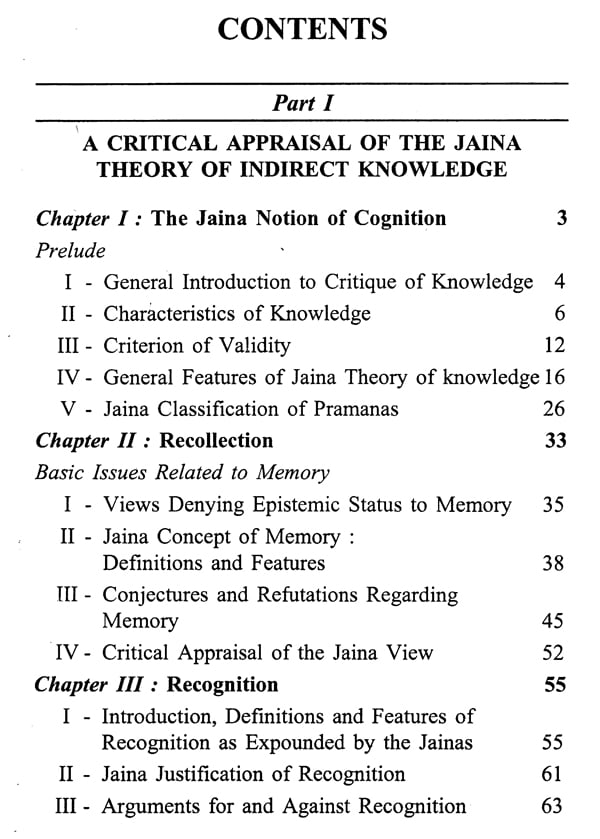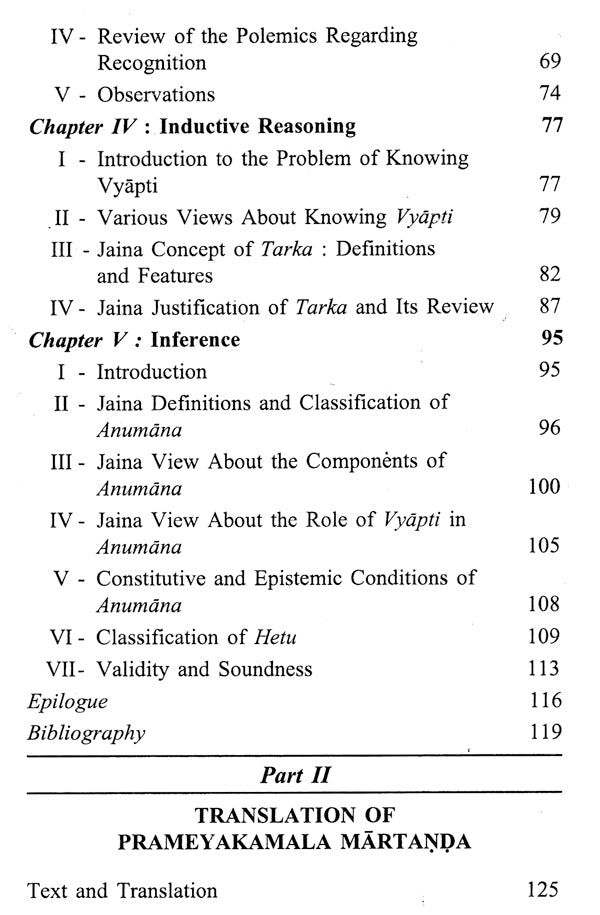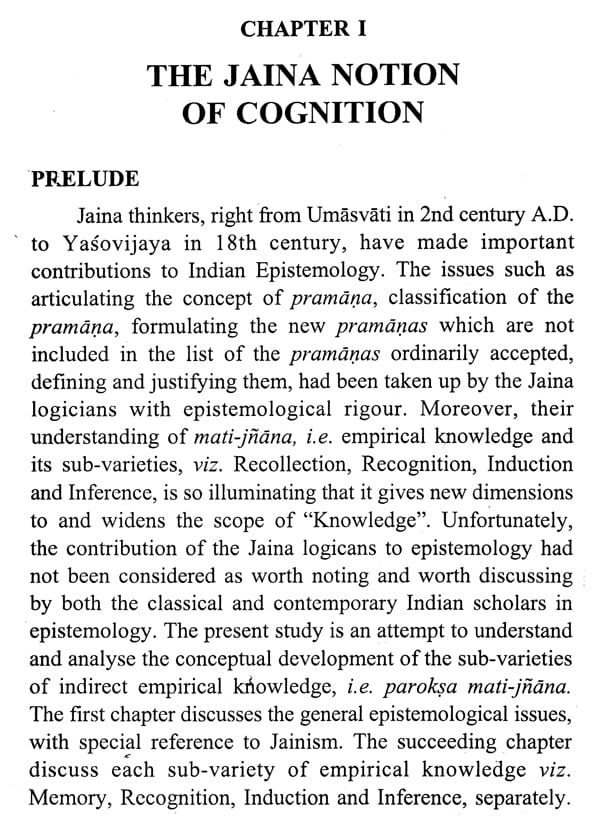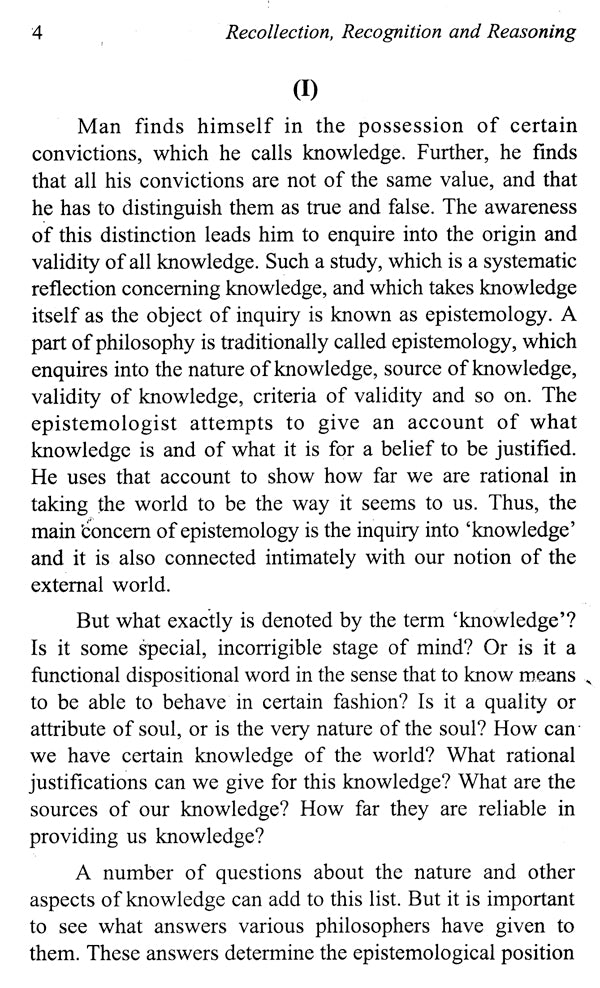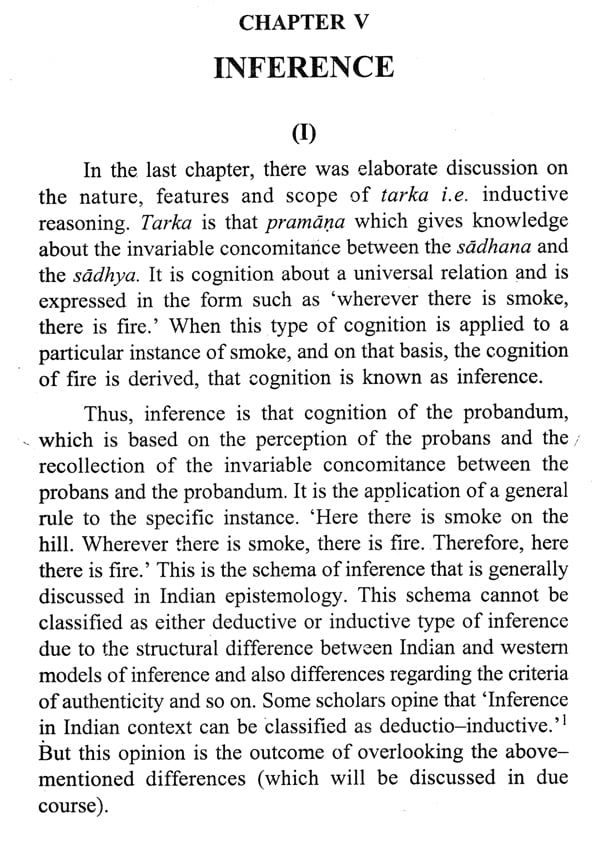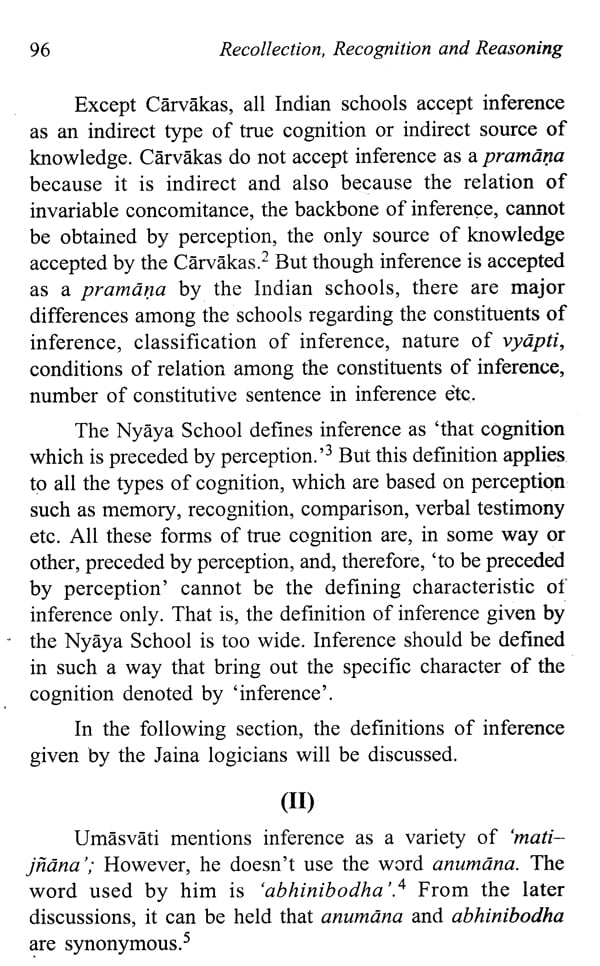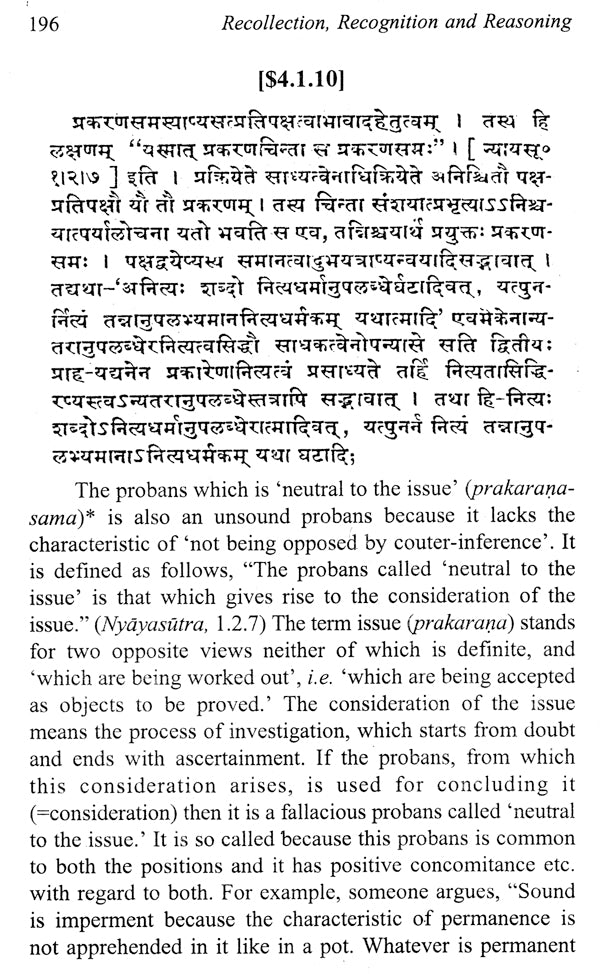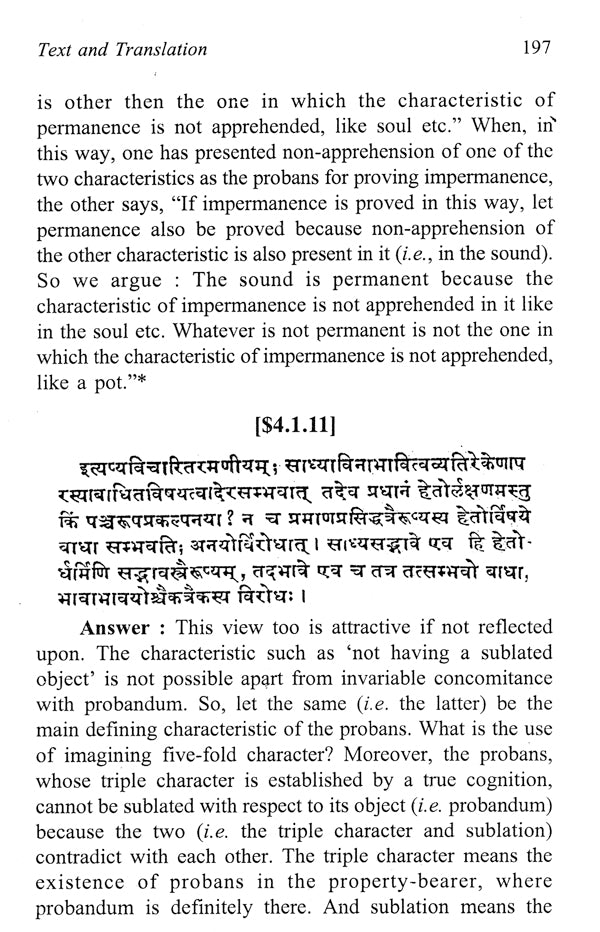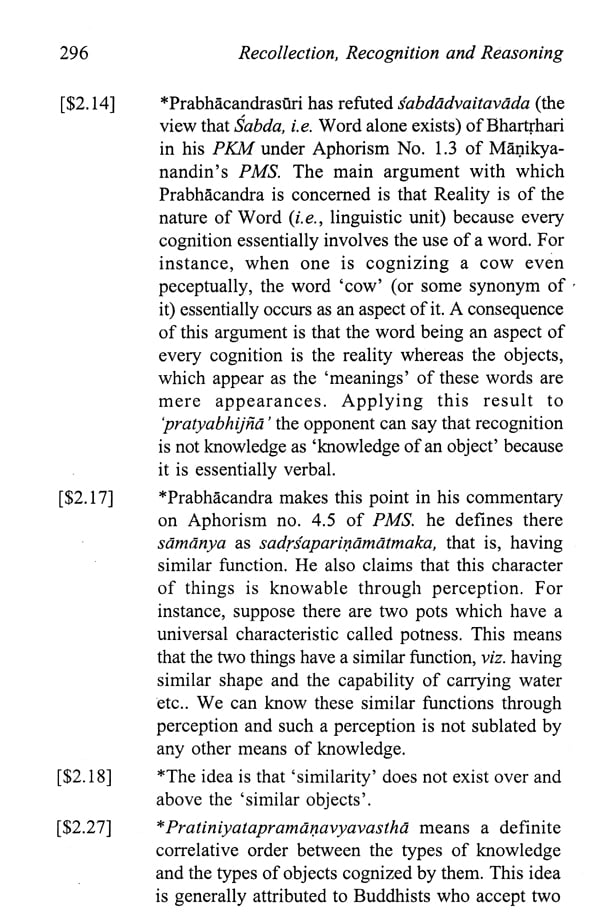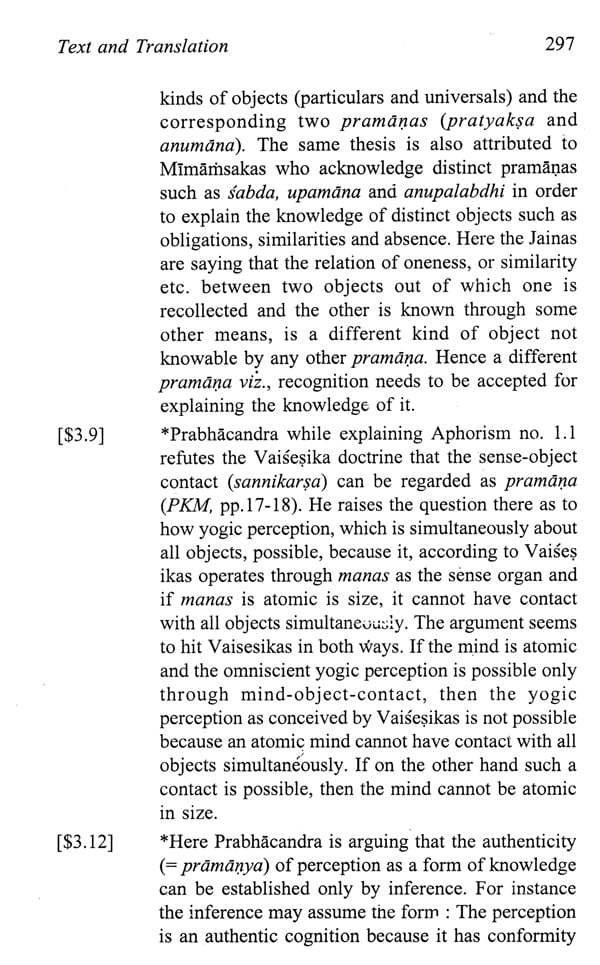Recollection, Recognition and Reasoning: A Study in The Jaina Theory of Paroksa Pramana
Recollection, Recognition and Reasoning: A Study in The Jaina Theory of Paroksa Pramana is backordered and will ship as soon as it is back in stock.
Couldn't load pickup availability
Genuine Products Guarantee
Genuine Products Guarantee
We guarantee 100% genuine products, and if proven otherwise, we will compensate you with 10 times the product's cost.
Delivery and Shipping
Delivery and Shipping
Products are generally ready for dispatch within 1 day and typically reach you in 3 to 5 days.
Book Details:
-
Author: S. S. Antarkar, P. P. Gokhale, Meenal Katarnikar
-
Publisher: Sri Satguru Publications
-
Language: English
-
Edition: 2011
-
ISBN: 9788170309352
-
Pages: 340
-
Cover: Hardcover
-
Dimensions: 23 cm x 15 cm
-
Weight: 490 gm
About the Book
This scholarly volume offers an in-depth exploration of Jaina epistemology, blending rigorous classical analysis with modern philosophical insight. The book begins with a detailed preface defining the concept of epistemology—the science of knowledge—both from Western and Indian philosophical traditions, introducing key Sanskrit terms like jñāna (cognition), pramāṇa (means of valid cognition), and viparīta jñāna (false cognition).
Central to the book is the study of how Indian systems of philosophy, particularly Jainism, classify and define various sources of knowledge. A unique contribution is the inclusion of translated passages from Prameyakamalamārtaṇḍa, which elaborates the dichotomy of direct (pratyakṣa) and indirect (parokṣa) cognition, and outlines five kinds of indirect cognition: memory (smṛti), recognition (pratyabhijñā), reasoning (tarka), inference (anumāna), and verbal testimony (āgama).
The book also traces the evolution of Jaina epistemological thought through three key stages:
-
Agamic Period (6th century BCE to 1st century CE)
-
Philosophical Period (1st to 8th century CE)
-
Logical/Critical Period (8th century CE onward)
Major thinkers like Umasvati, Siddhasena Divākara, and Akalanka are discussed in detail, highlighting their contributions to the definition and classification of pramāṇas. The authors analyze how Jaina philosophy redefined pramāṇa not as an external instrument, but as knowledge itself, thereby distinguishing its position from other schools such as Nyāya, Mīmāṃsā, and Buddhism.
Particular attention is given to Jaina distinctions between empirical, extra-sensory, and omniscient knowledge, with a nuanced discussion of how cognition is linked to liberation in Jaina soteriology.
The book also presents detailed classifications—up to fifteen types of pramāṇas—as acknowledged by different schools, including those based on sensory perception, mental cognition, clairvoyance (avadhi), telepathy (manaḥparyāya), and omniscience (kevala-jñāna).
This comprehensive work is ideal for scholars and students of Indian philosophy, comparative epistemology, and Jaina studies, offering an authoritative reference on one of the most intricate and refined systems of knowledge theory in classical Indian thought.

